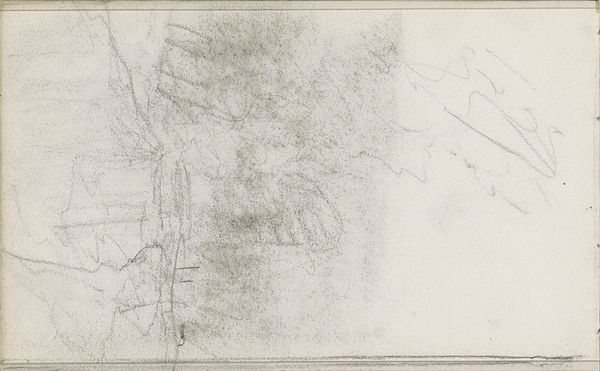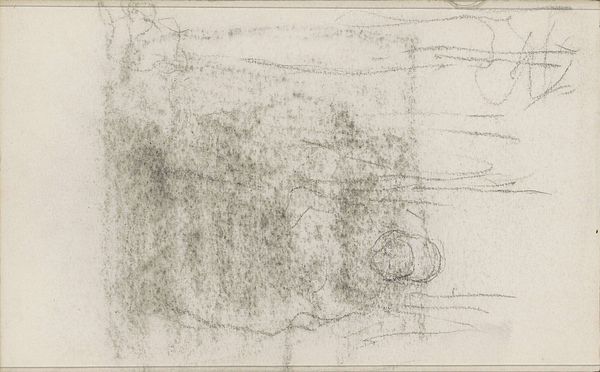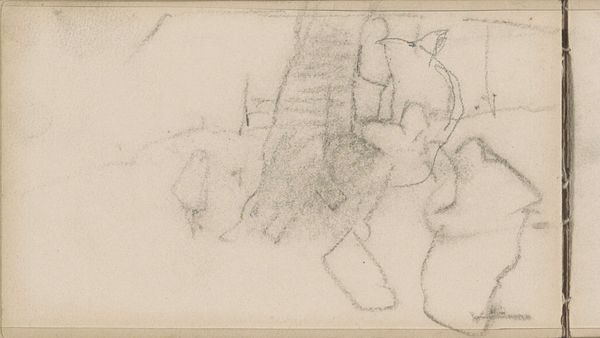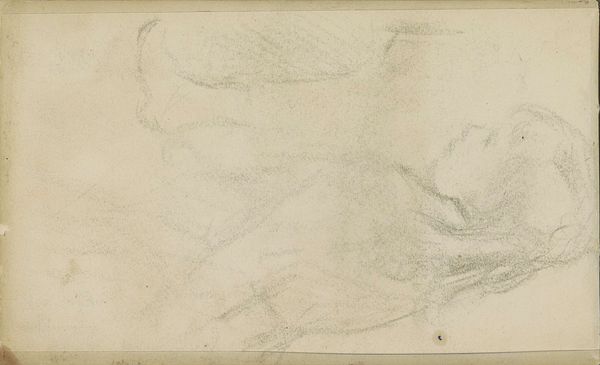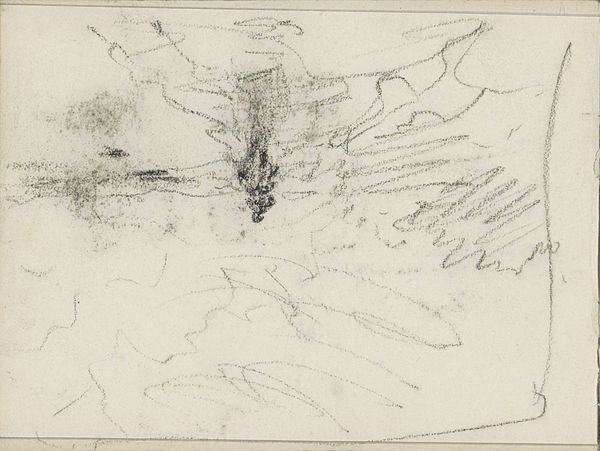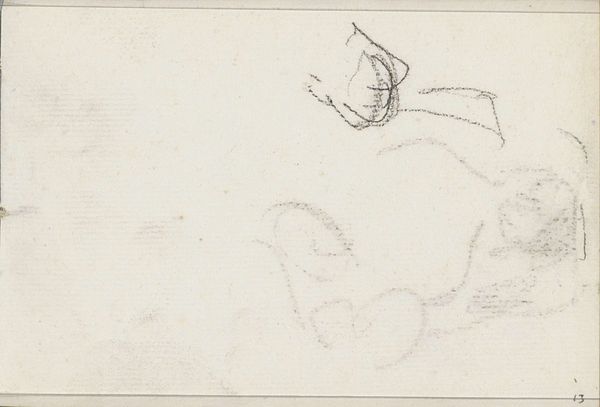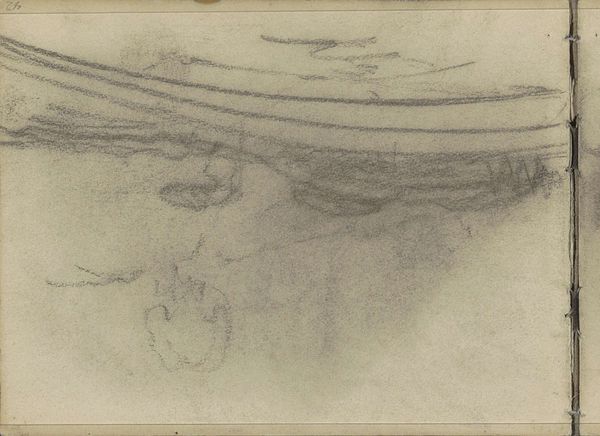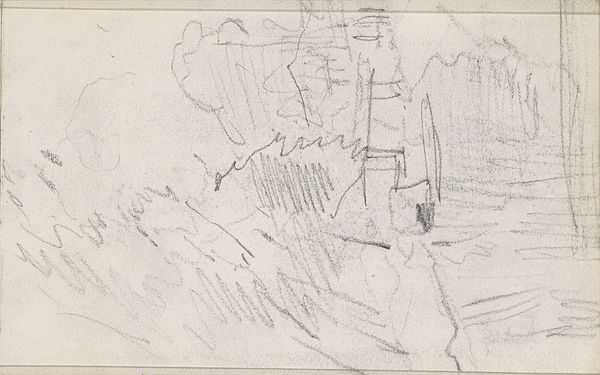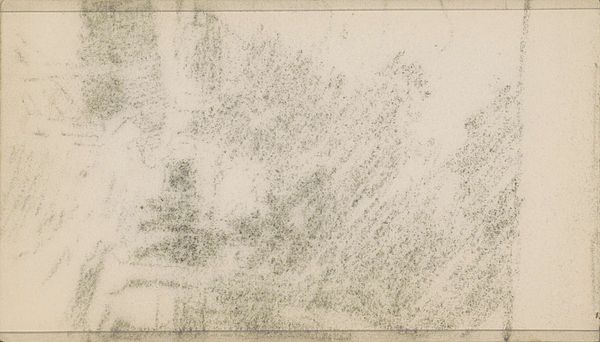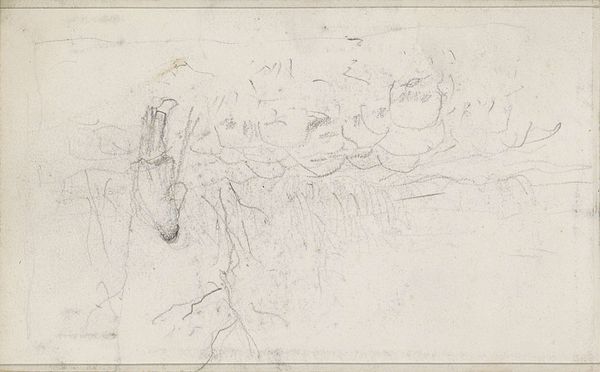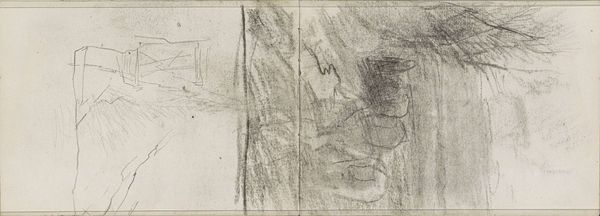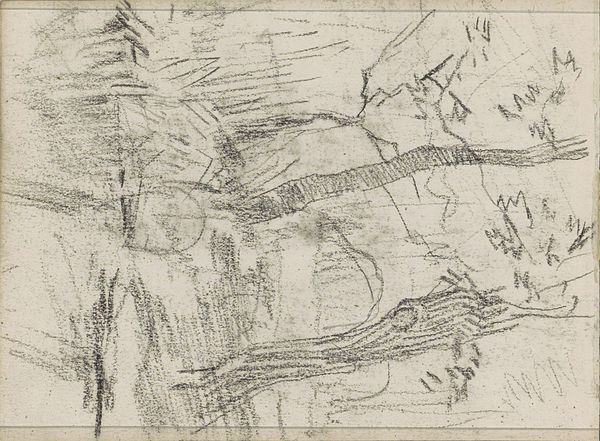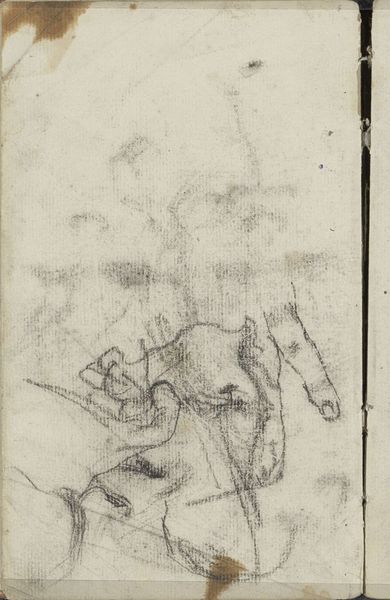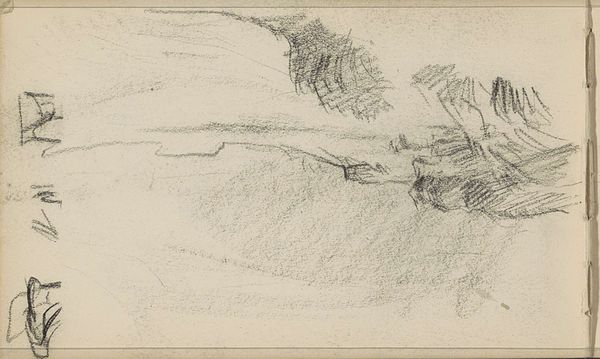
drawing, paper, pencil
#
drawing
#
impressionism
#
pencil sketch
#
landscape
#
figuration
#
paper
#
pencil
Copyright: Rijks Museum: Open Domain
Editor: Here we have Anton Mauve's "Two Figures in a Landscape," a pencil drawing on paper from around 1881 to 1888. The figures are so lightly sketched they almost dissolve into the background, evoking a feeling of transience. How do you interpret this work? Curator: The ethereal quality you’ve picked up on speaks to a crucial shift in artistic representation during this period. Consider Mauve’s social context: he's painting during a period of intense industrialization. The figures almost disappearing into the landscape can be read as a commentary on the displacement and erasure of rural life in the face of modernity. What do you notice about their relationship to the land itself? Editor: Well, they seem quite small, almost overwhelmed by the landscape. I suppose I hadn't considered the industrialization aspect of it. I just thought it was an aesthetic choice to blend the figures with nature. Curator: But isn’t the aesthetic always political? Think about who these figures might be – laborers, perhaps? Are they connected to the land, or alienated from it? The impressionistic style itself, with its fleeting, ephemeral strokes, could be seen as a way of capturing the instability and uncertainty of the era. And doesn't the limited colour palette remind you of other artistic movements? Editor: I see what you mean! Now that you point it out, the muted tones and subject matter do have similarities with social realism... I’m starting to look at it in a different way now, realizing the depth behind what seems like a quick sketch. Curator: Exactly! And recognizing these nuances enriches our understanding of not just the artwork, but the socio-political landscape it reflects and critiques.
Comments
No comments
Be the first to comment and join the conversation on the ultimate creative platform.
